As my first year of learning the language (Russian…obviously) is coming to an end, I thought I’ll give you guys a little “inside” of how I’m doing with it and what I’ve learnt on the way.
Firstly, Russian is one heck of a complicated language, but very interesting, fun, sometimes simpler than English… yes, I know I said it’s complex, stay with me, and very satisfying when you can help yourself. It was/still is difficult to learn, but by no means impossible and anyone who wants to learn, can!
When I first got here, my Russian language skills was only that of a very beginner, who could only do basic exercises on Rosetta Stone (Language learning computer program). I had very little vocabulary, couldn’t make sentences with them, could only say a few helpful communicative words and did not understand any grammar rules. I could read though, I did learn the alphabet at home, which was very helpful as no extra time needed to be spent on that when I arrived. However, most of the time, okay 99% of the time, I had no clue as to what I was reading or if I even pronounced the words right. Looking back now….oh boy, I definitely miss pronounced a lot of words! What I did need to learn when I got here was the “writing” alphabet. This might sound confusing but the alphabet you would see when translating from english to Russian on your phone, is not the same when you write. A lot of the letter look completely different when writing in cursive (they only write in cursive) and some letter look like their block letters. An example of one of the letters that look completely different: a Russian “D”. In block letters it looks like this ‘Д’ but in cursive it looks like our ‘g’. I was confused many times and had to wire my brain to memorize basically two different alphabets at the same time and then also learn how to read in block letters, and then a second later write in cursive. But I managed…
I went from writing like this…
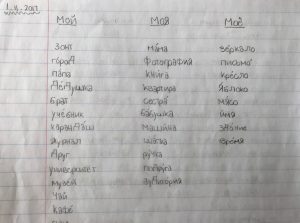
Block letters
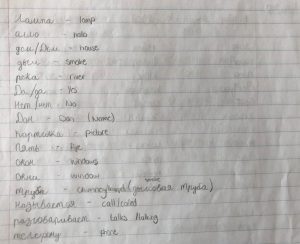
Cursive
to writing like this…
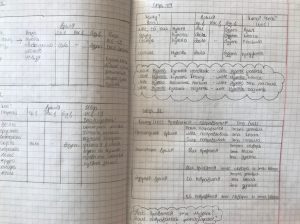
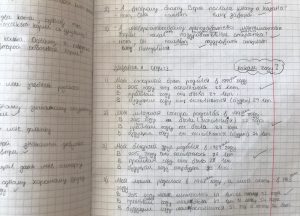
I don’t even need to think about how to write anymore. I can look at my textbook (all in block letters) and write in cursive without thinking twice about how to write the letters.
I must say, writing this and thinking of how I started, makes me realize how far I’ve come. I hear myself every day, so I don’t actually see my own progress, which at times doesn’t feel like much. But now, I think shifting my perspective, is helping even my own confidence in my own capability to see this through and know I can and will succeed.
Now that you know how I started out, let me tell you a few interesting things I learnt on the way.
- Write in pencil!!! 😀 This is probably not what you had in mind! 😀 What I learnt with this tip is, that you are going to make a lot of mistakes and it’s much easier, quicker and neater to write in pencil and erasing mistakes. Meaning less confusion when you do revision. A simple but very helpful tip.

- Use anything and everything that can be useful…in the beginning at least. Just to get you going. I’m talking about apps with vocabulary, watching Russian movies, listening to Russian music etc. However, don’t rely on these things to make you fluent. Besides learning grammar rules in class, already increasing your vocabulary by doing this, no app or movie will make you speak!
This was and in a way still is the most “dreading” thing for me. To speak! Luckily now I am descending from that hill called “speaking obstacle” one step at a time. I still sometimes feel like my brain and tongue are on two different pages, because while the one is still processing what to say, the other is going at its own speed. Either blurting out whatever comes, being correct or not, or going mute and not getting the words out at all. But leave me alone in my own thoughts and I can go on and on in the language, talking to myself, and even questioning the grammar that I’m using and fixing my own mistake etc.
I’ve been there, and even still go back to some of those “learning methods”, but it’s not what I rely on, it’s just a way of keeping my mind busy in the language. I even bought a book where you have a list of random words and then you have to find them in a sea of letters, kinda like a crossword I guess. But again, that is a way to keep my mind busy in the language when I’m not in the mood to actually study, have some extra time, while subconsciously adding some vocab…just a bonus. Watching movies and listening to music is always a good idea, but spending hours on an app or flipping through flash cards, is not going to teach you how to interact with the natives, their way of speaking and using the language. Grammar is one thing, but communicating is completely different! Something I learnt from my friend studying with me; language grammar is like a science, but it’s not the reality of how it’s used by the people. It opened my eyes and it’s very true! How many of us use the very correct, grammar speaking, way of our own language?
- Don’t think knowing all the words will make you fluent. The importance of being able to paraphrase and describe that word you don’t know, is actually a better and quicker way of becoming fluent.
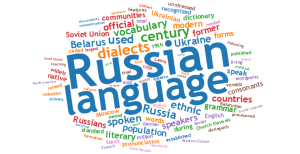
For example, I might not know the word for ‘library’, but if I can describe a building with many books which I can borrow, a quiet place and good place to study or do homework, etc. using Russian, then you could say I’m conversationally ‘fluent’… or at least on my way to be. Specific vocab can be acquired over time as required. You’ll never ever know every word and every aspect of grammar (even in your own language) but if you can describe it then you’re already heading in the right direction. Focusing on terms like ‘library’ which is extremely limited in its use, doesn’t have a very high success rate and in my opinion is a much more elongated way of learning, instead of learning how to actually describe the place and its functions, which is a much more effective way of becoming fluent. (Increasing your vocab is still important and helpful, just don’t sit there for hours and think you will be fluent after memorizing a few words.)
- Don’t think you have to learn the same way as everybody else. We’re all very different, so do you, and learn in a way that’s working for you. I still sometimes compare my progress, way of studying, when I’m studying to others and I shouldn’t. They learn their way, what works for them. It’s not necessarily going to work for you, or maybe you get some tips, things you haven’t even thought about and it could help. If the results are good, then the method doesn’t matter.
***
Those are just some of the things that I learnt that came to mind. Here’s the things I used, regardless of how effective they are or not, but it’s everything I’ve tried and some still use. They all played a role in helping me learn the language other than the actual Russian classes I have five days a week for 4 and a half hours a day or sometimes three and then three hours of Russian History or Social Science (in Russian). Some days we only have the Russian classes and other days we have them plus either History or Social Science. Those are obviously the main things teaching me the language, also listening and interacting with native speakers around me. Learning a foreign language definitely is easier in the country where it’s spoken, but here’s a few extra little things that help…
- Language learning apps
- Flashcards
- Russian “fairytales” for kids (book) *This is a new addition so haven’t read much of it yet. Some are famous stories like Goldilocks and the three bears and others are Russian stories.
- Russian crossword games
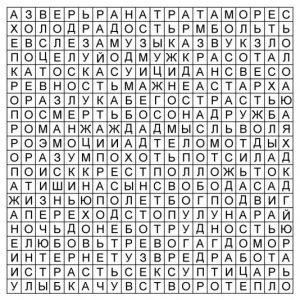
- Russian movies and series
- Russian music
- Russian conversation phrases “dictionary”
- Russian dictionary
I don’t do all of them at once, some I haven’t done in a long time, some I do whenever I feel like it, or have some time. But forcing yourself to do everything, all at once, or cramming every little extra thing in your day even when you’re not in the mood, is not going to be helpful at all. You have to be “in the mood”, other wise you’re wasting your time and you could end up hating what you’re doing. So for me if a day of classes and homework/revision has me tired and left me not in the mood for extra little things like these, then I’m not going to do them. Rather relax because then tomorrow you will feel up for the next class and you’ll take in the new work quicker. A fresh brain is better than a fried one! 😀
Okay just before I go, remember I said that sometimes Russian is simpler than English? What I meant by that is … for example, in English, or Afrikaans, you could say “I am a doctor” / “Ek is ‘n dokter” but in Russian, if I direct translate, all you have to say is “I doctor” / “Ek dokter”. They don’t have so many extra in-between words to describe something. Don’t get me wrong, they do have but not like we use them in English or Afrikaans. Now that’s about the only “simple” thing about Russian grammar. 😀
I hope you guys enjoyed this week’s post. If you’re interested in learning a new language, it’s never too late to start.
I can’t believe next month I’m coming home for my holiday before I start my first year with my degree studies in September. (Second year in Russia) Time really went fast! But before I can get on that plane, I first need to pass my exams. Whish me luck!
Have a wonderful week everyone!
To live is To Dane
xoxo
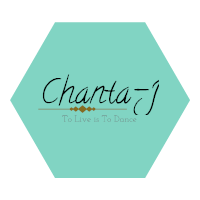
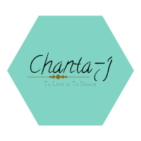


Looking forward to seeing you soon!!! Loving your blogs!
Thank you so much Kirsteen! I’m also looking forward and can’t wait!